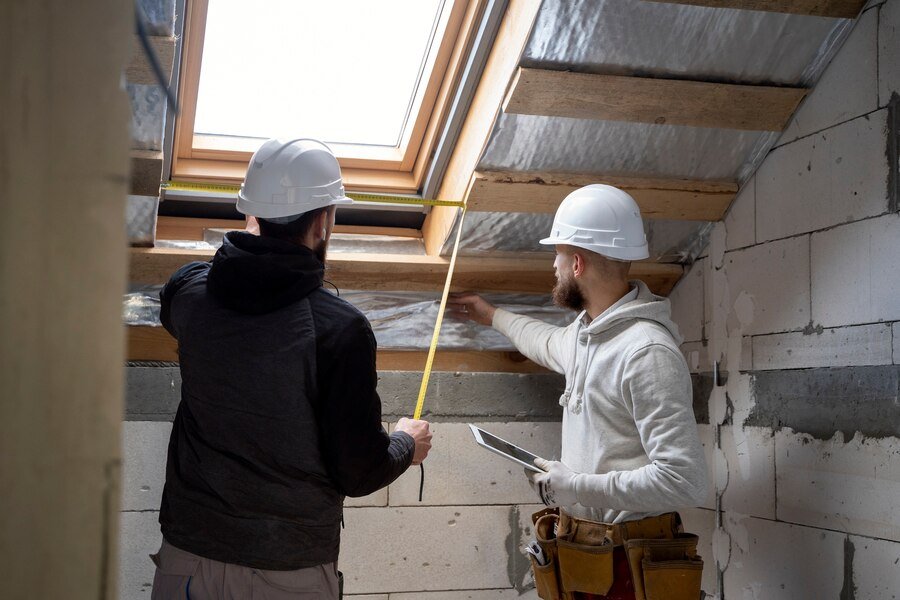Why Is Insulation Required In Both Walls And Roofs?
Insulation plays a crucial role in maintaining the energy efficiency and comfort of buildings. While many people understand the importance of insulating their roofs, the significance of building wall insulation is often overlooked. This article explores why insulation is essential for both walls and roofs, highlighting the benefits and the role of steel building insulation services in achieving optimal results.
The Importance of Building Wall Insulation
Building wall insulation is a critical component of a well-insulated structure. It serves multiple purposes, including:
Thermal Regulation
Building wall insulation helps maintain a consistent indoor temperature by reducing heat transfer through the walls. This is particularly important in climates with extreme temperatures, where insulation can significantly reduce the need for heating and cooling.
Energy Efficiency
Properly insulated walls contribute to the overall energy efficiency of a building. By minimizing heat loss in the winter and heat gain in the summer, insulation reduces the energy required to maintain a comfortable indoor environment. This leads to lower utility bills and a reduced carbon footprint.
Soundproofing
Insulation in walls also acts as a sound barrier, reducing noise transmission between rooms and from external sources. This is especially beneficial in urban areas or multi-family dwellings where noise pollution can be a concern.
Moisture Control
Insulating walls helps prevent condensation and moisture buildup, which can lead to mold growth and structural damage. This is crucial for maintaining the integrity and longevity of the building.
The Role of Roof Insulation
Just like walls, roofs are a major source of heat loss and gain in a building. Roof insulation is essential for several reasons:
Heat Retention
In colder climates, roof insulation helps retain heat within the building, reducing the need for excessive heating. This is particularly important for buildings with large roof areas, such as warehouses and industrial facilities.
Cooling Efficiency
In warmer climates, roof insulation prevents heat from entering the building, reducing the need for air conditioning. This not only lowers energy consumption but also enhances indoor comfort.
Protection from Weather Extremes
Roof insulation provides an additional layer of protection against weather extremes, such as heavy rain, snow, and hail. It helps maintain the structural integrity of the roof and prevents damage caused by thermal expansion and contraction.
Energy Savings
By reducing the energy required for heating and cooling, roof insulation contributes to significant energy savings. This is particularly beneficial for commercial buildings, where energy costs can be a major expense.
Integrating Wall and Roof Insulation
For optimal energy efficiency, it is essential to integrate both wall and roof insulation. This holistic approach ensures that the entire building envelope is insulated, minimizing thermal bridges and maximizing energy savings. Here are some key considerations for integrating wall and roof insulation:
Material Selection
The choice of insulation materials is crucial for achieving the desired thermal performance. Common materials include fiberglass, foam board, spray foam, and mineral wool. Each material has its own advantages and is suitable for different applications.
Installation Techniques
Proper installation is critical to the effectiveness of insulation. Insulation materials must be installed continuously and without gaps to prevent thermal bridging. This requires careful planning and execution, especially at joints and penetrations.
Steel Building Insulation Services
For steel buildings, specialized insulation services are available to address the unique challenges of insulating metal structures. Steel building insulation services provide tailored solutions that enhance the thermal performance and durability of steel buildings.
Benefits of Comprehensive Insulation
Comprehensive insulation of both walls and roofs offers numerous benefits, including
Enhanced Comfort
Insulating both walls and roofs creates a more comfortable indoor environment by maintaining a consistent temperature and reducing drafts.
Energy Efficiency
Comprehensive insulation significantly reduces energy consumption, leading to lower utility bills and a reduced environmental impact.
Improved Indoor Air Quality
By preventing moisture buildup and mold growth, insulation contributes to better indoor air quality and a healthier living environment.
Increased Property Value
Well-insulated buildings are more attractive to buyers and tenants, as they offer lower energy costs and improved comfort. This can increase the property value and marketability of the building.
Case Studies
Several case studies highlight the effectiveness of comprehensive insulation in both walls and roofs:
Residential Homes
A study on residential homes in a cold climate found that integrating wall and roof insulation reduced heating energy consumption by 30%. Homeowners reported improved comfort and lower energy bills.
Commercial Buildings
A commercial office building retrofitted with wall and roof insulation saw a 25% decrease in cooling energy demand. The comprehensive insulation also contributed to better indoor air quality and reduced maintenance costs.
Industrial Facilities
An industrial facility that implemented steel building insulation services experienced a 20% reduction in overall energy use. The improved thermal performance created a more stable indoor environment and reduced operational expenses.
Conclusion
Insulation is a vital component of energy-efficient buildings, and it is essential to insulate both walls and roofs to achieve optimal results. Building wall insulation and roof insulation work together to create a comprehensive thermal barrier, enhancing comfort, energy efficiency, and indoor air quality. By integrating these insulation strategies and utilizing specialized services such as steel building insulation services, building owners can significantly reduce energy consumption and create more sustainable and comfortable environments. As the construction industry continues to prioritize energy efficiency, the importance of comprehensive insulation will only continue to grow.






